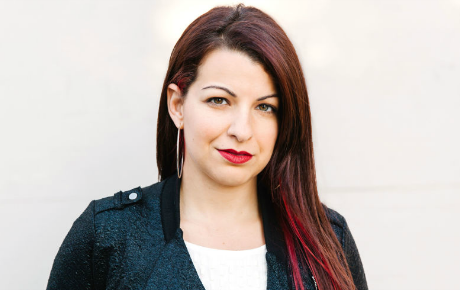
The video game journalist Anita Sarkeesian was recently in Sweden to attend the 250th anniversary of our free press, and discuss the recent developments on free speech in the world.
Bild: Pressbild
Gaming, politics and the future: Interview with Anita Sarkeesian
2016-12-20 | Mattias Irving

INTERNATIONAL
These are hard times for outspoken feminists online. Gaming journalist Anita Sarkeesian discusses the reemergence of political hate rhetorics, and offers her own best strategies for coping with abuse online.
Anita Sarkeesian has gone from hosting a small channel making pedagogic, mainstream feminist content about popular culture, mainly video games, to being something of an icon for many women struggling to survive in the oppressive reality of online harassment.
There are basically two ways to deal with things whenever you end up at the receiving end of internet controversy, be it justified criticism or, as in Sarkeesian’s case, blatant and abusive harassment.
For one, there is the staple narrative of victimization and moralization all too common with people who try to ignite their rocket to stardom on the sparks of controversy. Sarkeesian’s approach on the other hand is to politicize, to examine the driving mechanisms of the hatred and abuse, and use them in a way that might be constructive for others fighting the same battle. Her way of dealing with hatred has earned her an imprtant place in many talks all over the world where freedom of speech and misogyny have been discussed.
So when Sarkeesian came to Sweden (for the fourth time!) to participate in the symposium for the 250th anniversary of freedom of speech in Sweden, the focus of her stay was not the video games industry. However, it turns out that the subjects aren't as alien from each other as they might seem at a first glance.
Meeting Anita Sarkeesian in a calm hotel lobby during her stay for the symposium in Stockholm, she does mention that she is about to go to Malmö for a meeting with people from the gaming industry there. But she is wrapping up her longtime going video series Tropes vs women in video games, and she has lately hosted a shorter series called Ordinary women, detailing the lives of important women in history.
Is this perhaps a step in a direction away from pop culture, perhaps doing more political commentary?
– In a way it is, but I feel that the subjects are related. Pop culture is about the stories we tell about ourselves, and when we write women out of history, we are also writing their stories out of history. I have met so many creative people, especially men, who said to me, ”I don't know how to write women” or, ”it wasn't believable to have women do this and that in those times”. So, Ordinary women is a way to tell those women's stories and write them back in the history books.
– We did Ordinary women differently from anything I’ve ever done before. We had a big production team, shot them professionally, and had animators. It was such a larger team effort, compared to Tropes. I am happy about it and I’m proud of the whole team and our collaboration, says Anita.
New projects are coming
Can we expect something more along these lines?
– We have something more in the works but I can’t announce it yet, since it’s very early. But we’re wrapping up Tropes, doing more livestreaming, and also wrapping up Ordinary women. New things are coming. The rise of Donald Trump in the US hit us all hard, and it is important to us that what we do moving into 2017 contibutes to creating a better world. You will see more commentary from us in that regard.
When I click one of your Youtube videos, my list of suggestions gets absolutely bombarded with malicious response videos, and once I click on one of those videos, there is no way to get back to a more balanced content. It’s like Youtube is setting up a one-way street down into a cauldron of hate.
– Social media is our primary platform, but Youtube's algorithms are like, ”you like all these feminist videos? Then how about all these anti-feminist videos?”, says Anita with heavy sarcasm.
– Part of the large scale harassment campaign against me is that there are thousands of hate videos, to the extent that if you look up my name on Youtube, my own videos don’t even come up first. You get all these recommended videos with slander, desinformation and defamation instead. I’ve spoken with Youtube about it on several occasions, and it is still a big problem. They need to fix it, and build algorithms that are more accurate and don’t promote hate, which is what is happening.
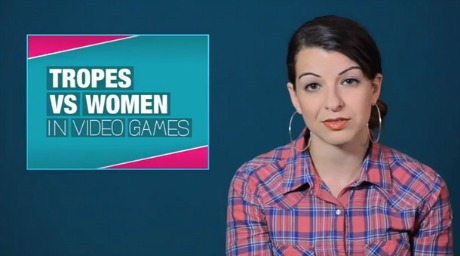
Anita Sarkeesian points out the issues with working and being published on the same platform which also promotes content that is harmful to you.
– Youtube needs to understand the role that they play, and their responsibility to keep their users safe and create a welcoming environment for all people. Right now the loudest people get to shout down and marginalize the other voices, making the platform hostile to a whole lot of people. It’s not just me. Social media needs to reevaluate and reassess how their platforms are built and how they function.
I believe this has larger ramifications for feminists and others with a progressive agenda. And these hateful forces are entering the White house now, using the same rhetoric, oscillating between self righteousness and victimhood. Which group precedes the other here?
– One of my colleagues tweeted that: Who knew that Gamergate was the canary in the coalmine? It may seem weird to say that the gaming industry is connected to the large scale politics, but it’s still a fact that many of us who have been targeted by the haters in the gamer community see the exact parallells in the rise of how american politics play out and the rise of the alt-right, which is really just white supremacists. We should not sugar coat that, but define things as they are.
– Watching the parallells between the pop culture online world and the rhetoric of the alt-right, is disconcerting. This mentality is now literally being rewarded. It’s not surprising that two weeks after the election, we have 700 reported acts of aggression that are hateful, racist, sexist, transphobic et cetera. People, mostly white men, feel that they are validated because of the president-elect. I hear the same story from people here in Sweden about the rise of the Sweden democrats. Looking at UK and Brexit, this is a global issue.
Dangerous divides returning from the past
In Sweden there is this speculation that our national rightwing extremist party is the result of disenfranchised Swedish men, the issues with a dying countryside and economical injustices, but aren’t those basically the same explanations now in use about the rise of Trump in the US?
– Economically, Sweden and the US are extremely different. Sure there is poverty and economic classes in Sweden as well, but you still have built in social safety nets, while we don’t. There is a huge difference there. If that was the only issue, then we wouldn’t be seeing these parallells. There has to be more, says Anita, continuing with poignancy:
– If we are talking about disenfranchised men in the US, you need to remember that we have a very long history of creating divisions along racial lines. Rich white people have always convinced poor white people that they have more in common with each other than poor white folks and poor people of color. This has been happening for centuries. It is easy to tell white men that all the problems in their lives arise because of women, or because of people of color, or what have you, basically everybody who isn't a straight white dude. When you hear these messages over and over again, they start to become fact. This has manifested in the election of Trump.
”I talk about video games. Why am I here?”
– I’ve just been to a conference with journalist women from all around the world. These are women who have been enemies of the states. They’ve been smuggled into areas to make interviews. Me, I talk about video games. In a way I felt, why am I here? But we have much to learn from these people. They have been dealing with oppressive governments for a long time. For us in the US, it is easy to wonder how this can be happening. This kind of development may be new to us but it is not new in the world.
There’s a long history of misogynist backlashes and rhetoric, stating that feminists are blinded by ideology and power hunger when they demand their equal rights. In a way what is happening today doesn’t seem very new to me. Even the women’s suffrage movement were under the ”scrutiny” of similar forces using similar rhetorics. Maybe this isn’t a new phenomenon?
– The feminists who came before me have fought tooth and nail to improve the lives of women. Yet, today we see a situation where it’s practically impossible to get an abortion in large parts of the US. We look back to the civil rights movement and the enormous sacrifices that were made to bring some dignity to the people of color specifically in the US. And today we see cops shooting black men in the streets, regularly. Are we moving backwards? What is happening? We have someone elected who does not care at all about these issues. And it’s not like american politics are even a little bit progressive, to begin with. We are already struggling to have immigrants and refugees treated like humans.
Surviving in a hostile online environment
What are your best tips for other progressive voices online who need to find a strategy to stay safe and keep working?
– Harassment isn’t just death threats. It’s not simply a matter of what’s legal or illegal. To me, the everyday harassment I get is not just death threats. While those are a part of it, the everyday harassment is ”you stupid liar” or ”you dumb cunt”. Horrible pictures that wish death upon me. Some of that is not illegal. But understanding that when you have thousands of people constantly sending messages like that, it takes a toll. And not just on me, but on my team as well, because they too are exposed.
– On a very practical level, make sure that you mind your online security, even if you feel that you are not at risk to do that in general, but dealing with online harassment is about more things than not getting hacked, for example. It’s about understanding that you need support, and knowing what that looks like for you, in order to sustain you and let you keep doing the work that you do in a hostile environment. For me, it is important to have support networks and people in my life that I can rely on and talk with, either through helping me deal with it, or through helping me not deal with it for a little bit.
– When you’re under trauma you don’t necessarily know yourself what you really want, that's why you need people there to support you. The worst thing a person can do in supporting somebody who is harassed, is trying to fix it. You need validation and support. One thing I didn’t do, is I didn’t realize how important it is to stop looking at the harassment. It’s like a train wreck, you can’t stop looking at it. I spent hours when I just kept scrolling. Seeing it everyday... one thing I did over the last year when I started feeling tired of feeling unhuman, putting up all these walls, is, I stopped looking at it. This worked for me. The way that I was able to do that is because I’m really lucky to have a team that can keep track of my social media. You need someone who you trust to look at it, keep track of it and report it, so you don't have to.
Kommentarer
Du måste vara inloggad för att kunna lämna en kommentar.
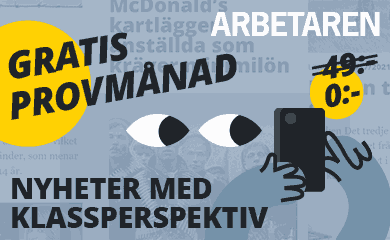

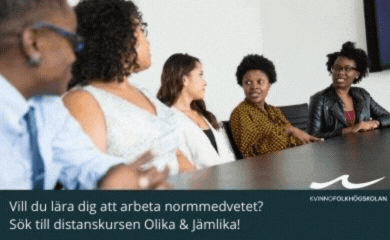




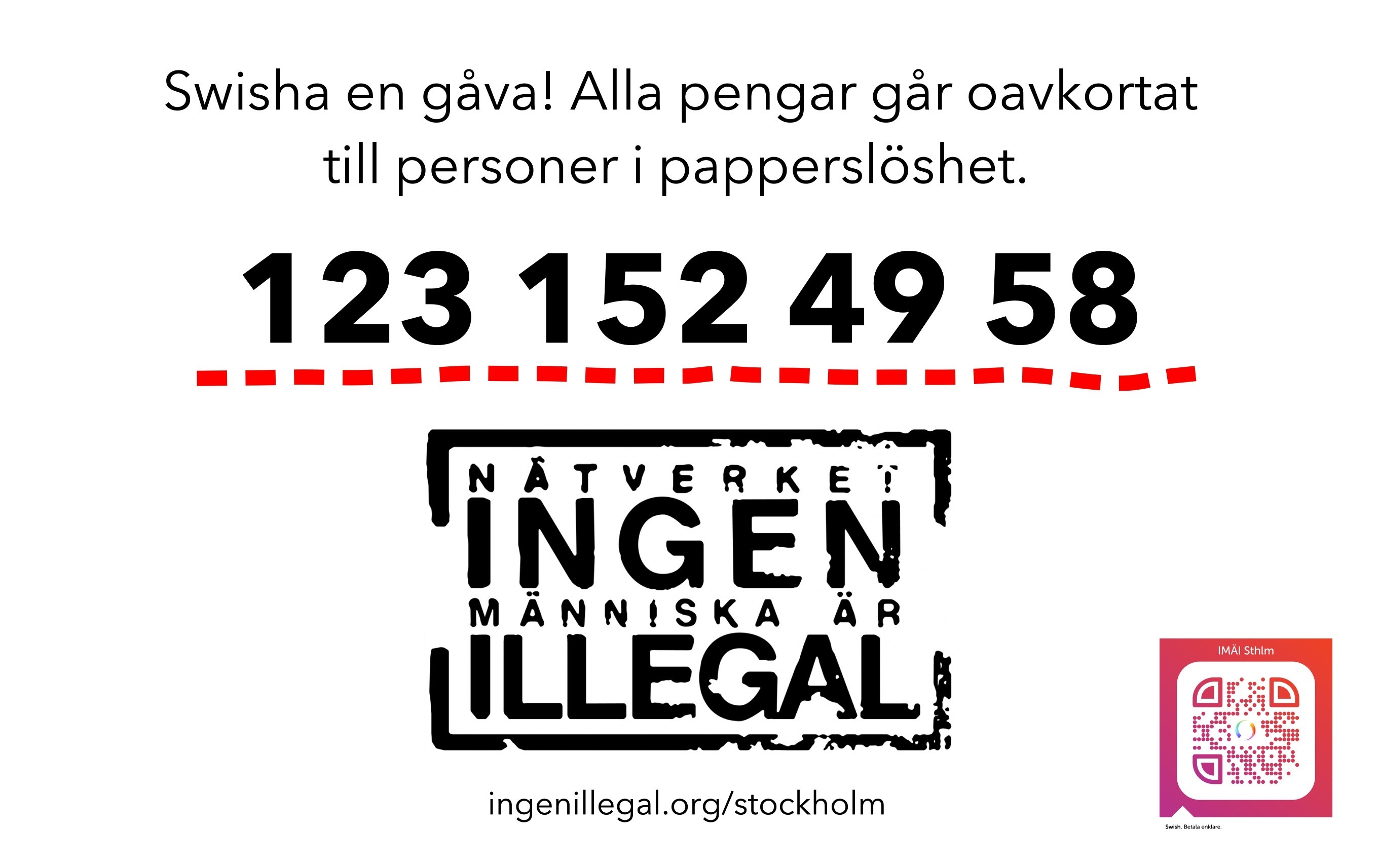



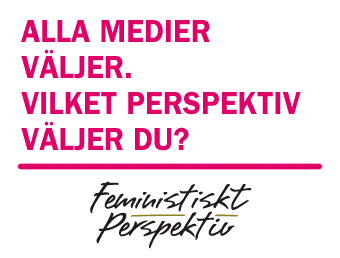












MEST KOMMENTERAT
SENASTE KOMMENTARERNA
Om Var Grupp 8 en feministisk organisation?
Om #bildskolan 21: Att äta Den Andre
Om #bildskolan 21: Att äta Den Andre
Om Porr handlar om betalda övergrepp
Om Nobels fredspris till kampanj för att avskaffa kärnvapen
Om Feministiskt perspektiv öppnar arkivet och startar på nytt!
Om Rödgrönt ointresse för fred och nedrustning borde oroa många
Om Var inte målet att vi skulle jobba mindre?
Om Feministiskt perspektiv öppnar arkivet och startar på nytt!
Om Feministiskt perspektiv öppnar arkivet och startar på nytt!
MEST LÄST